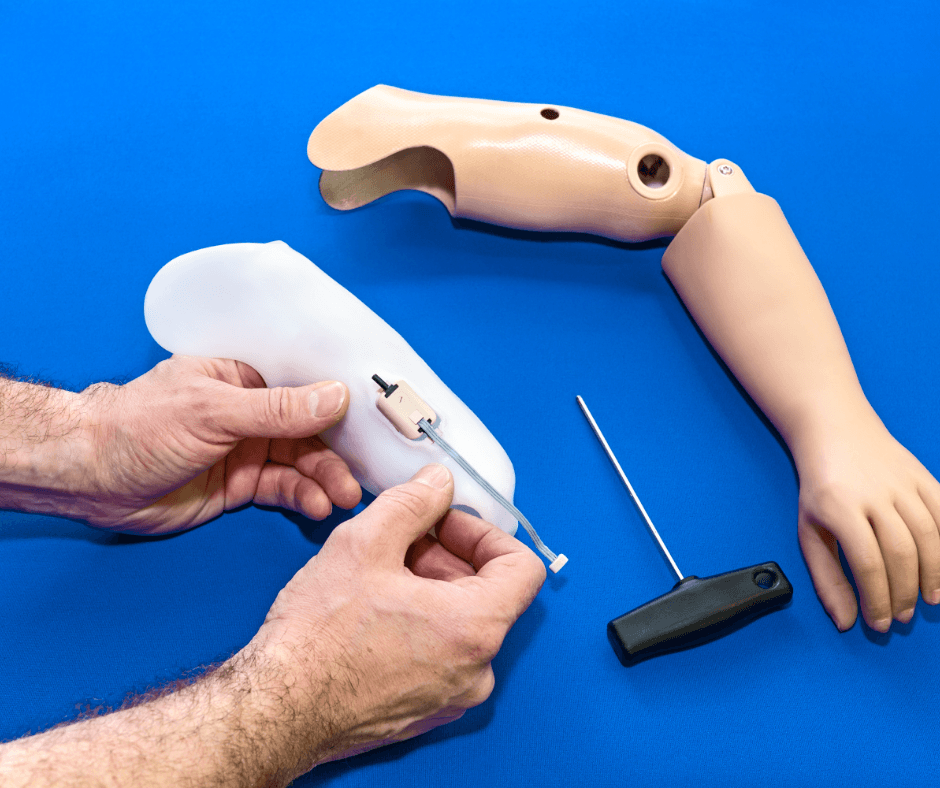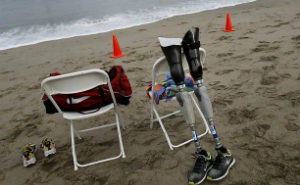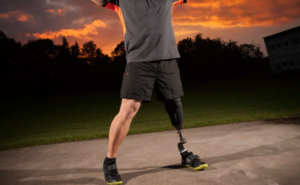Prosthetics can restore a huge part of your normal life after an amputation. For example, a prosthetic leg enhances your mobility, allows you to resume your gym sessions, and above all, gives you back your independence.
While there are many types of prostheses out there, the most crucial aspect is finding one that gives you a comfortable fit. The comfort and ease of use depend on the prosthetic socket and the utilization of prosthetic supplies.
In this article, we will look at supplies for prosthetics that improve the link between the socket and your residual limb to give you the needed comfort.
What are the Different Types of Prosthesis?
Prosthetics are artificial limbs that are fitted to replace a missing limb. There are three types of prostheses- lower limb (leg), upper limb (arm), and cosmetic prosthesis.
Lower limb prosthetics are the most common type and make up approximately 80% of all prosthetics. The majority of people who use lower-limb prosthetics are above the age of forty and are mostly amputated due to health conditions. A sizable percentage also lost limbs to car crashes, war, or other traumas.
Upper limb prosthetics are common with younger patients who lose their limbs from injuries. Leg and arm prostheses are designed to restore limb functions and independence of the patient. Cosmetic prostheses are meant to mimic natural limbs but are limited in their function. This is why you should choose a prosthetic for its functionality, even though it may not have the color and shape of natural limbs.
10 Most Important Supplies for Prosthetics
Whether you are looking for a new prosthetic or parts (such as a prosthetic liner or prosthetic foot supplies) you need a reliable and experienced dealer. An experienced supplier will know exactly what you need and will help you identify possible challenges with your current prosthesis.
You can use search engines to search for “prosthetic supplies near me” and read about them before making a decision. To enhance the comfort and functionality of your prosthesis ensure the following supplies are intact.
Prosthetic Socket
The prosthetic socket is the part of the prosthesis that comes into contact with your residual limb. Therefore, prosthetics sockets are the most important part of your prosthesis. A good socket should snugly fit on your residual limb – it should not be too tight or too loose. If it is too tight, you will be too sweaty and uncomfortable. If it is too loose, the socket could increase rubbing and irritate the skin on your residual limb.
Although a prosthetic liner can solve some challenges with the socket, it is a good idea to get your socket checked or replaced.
Silicone Liner for Prosthetic Leg
As the prosthesis socket links the residual limb, supplies for the prosthetic leg also come with a prosthetic liner. The liner protects your skin from the prosthetic material and enhances comfort as you go about your activities. A silicone liner for a prosthetic leg is both soft and durable compared to other types of liners.
Gel Liner
Gel liners work similarly to the silicone liner for prosthetic legs but are more versatile to changes in pressure. If you are walking for long distances or headed for your workout sessions, then a gel liner would be better suited.
You can order a gel liner by searching for a prosthetic store near me.
Prosthetic Socks
Prosthetic socks cushion your residual limb from impacts and friction. The socks also help to absorb excess sweat.
If you have been using a prosthesis for some time, you may have noted the thickness of your residual limb changes with time. You can manage these changes using prosthetic socks and make your residual limb fit properly in the socket.
Simply type amputee supplies near me on your search engine to locate dealers in prosthetic foot supplies and order your prosthetic socks.
Shrinkers
Shrinkers help to control the swelling of your residual limb. Shrinkers are especially important in the morning as your residual limb is usually larger. Use the shrinkers to reduce the size of the residual limb to give it a comfortable fit in the socket.
To order a shrinker, check for amputee supplies near me on your computer.
Suspension Sleeve
If you have a below-the-knee amputation, you will need to secure suspension systems for the prosthesis. Suspension systems for prosthesis on the residual limb and the level of activity of the patient.
A prosthetic arm sleeve is an example of suspension systems for prosthesis of the upper limbs. A compression sleeve for prosthetics works as an alternative to a suspension sleeve.
Compression Sleeve for Prosthetics
A compression sleeve for prosthetics is used for patients who experience pain when using suspension sleeves.
Prosthetists also recommend compressional sleeves for patients who lose a limb at a joint level. A prosthetic arm sleeve can be a compression if it is fitted at the elbow. The prosthetic arm sleeve at the elbow allows the muscles and tendons to rest after activity.
Antiperspirants
Antiperspirant is another important supply for an amputee, especially in summer and when engaging in physical activities. Antiperspirants reduce sweating at the point of contact between your residual limb and the socket.
You can get antiperspirants at an amputee supply store in order to prepare for summer or workout sessions. You should also include antiperspirants any time you shop at an amputee supplies outlet.
Skin Dressings
If your level of activity is high or there is an issue at the socket, you will experience some level of skin irritation. The skin irritation should be dressed after every activity or at bedtime. You can get skin dressing supplies from a prosthetic store near you.
Antibacterial Soap
You will also need antibacterial soap to clean your residual limb and wash the prosthetic socks. Keeping the residual limb, liners, and socks clean enhances your comfort when using your prosthesis.
We Can Help
Regardless of how well you take care of your prosthesis, it may not last for a lifetime. You will need to replace some parts and supplies for your prosthesis from time to time.
For the best supplies for prosthetics, always ensure you source them from reliable and approved suppliers. Contact Horton’s Orthotics & Prosthetics today at 501-214-4191 to place an order for supplies for prosthetic leg or arm amputee supplies.



